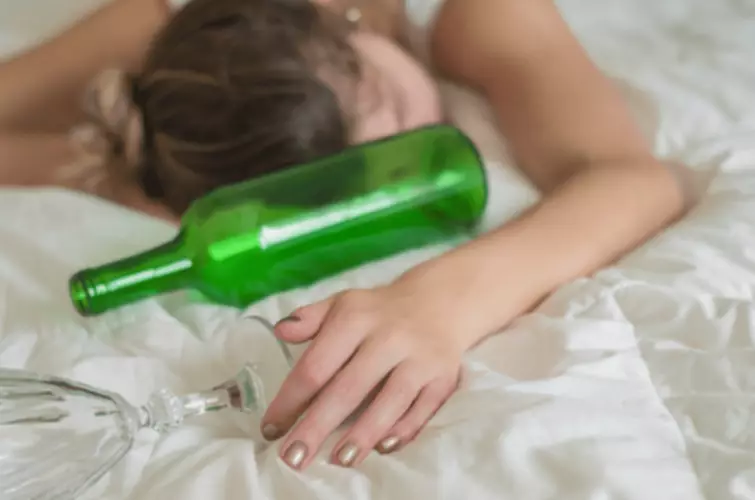Its first secret trick is building tolerance through neuroadaptation. As we drink more, our bodies adapt, requiring higher quantities to achieve the same effects, pushing us deeper into the pitcher plant. Its second trick is habit formation, driven by cues and cravings. The basal ganglia, a part of our brain involved in habit formation, strengthens the association between drinking and the context in which it occurs.
#3 Make a Schedule to Structure Your Days

Sometimes it’s beneficial to sit quietly with your thoughts, meditate, journal, or just read a book or watch a movie. Try getting in touch with friends or family that you like spending time with. It may also help get out and try some new activities or do some volunteer work to meet some new people.
More on Substance Abuse and Addiction
This consistent connection will help foster healthy relationships in recovery with people who can support you and what you’re going through in the present moment. Losing relationships to the substance can be challenging but anchoring to others in recovery can be the very thing you need to feel worthy of recovery. In more severe cases, drinking out of boredom can lead to severe alcohol abuse disorders. Starting to drink gradually might be considered normal or appropriate, but it can quickly create a dependence and lead to a severe drinking problem.

Addiction Treatment Programs
Try to look at boredom as a space for meaningful stimulation in your day. What’s more, research has linked boredom to certain benefits. Being perceptive of your specific hunger and fullness signs may be one of the most effective ways to determine whether you’re hungry or bored. It’s not unusual to reach for a snack when there isn’t much else to do, even when you aren’t actually hungry.
Tip 4: Reach out to others
- Then we’ll show you how to better manage boredom and avoid unhealthy drinking patterns.
- Yet, little does the fly know, the inner walls of the pitcher are coated with a slippery, waxy substance.
- Researchers know that your emotions and mood often influence when, what, and how much you eat (20, 21).
- It can be your friends, colleagues, or family who know you for ideas of things you can do to fill your time differently.
- Replacing boredom drinking with enjoyable and fulfilling activities can help you maintain a healthier lifestyle and improve your mental health.
- Moderate alcohol consumption has the potential to enliven social situations.
Activities like talking a few short walks or periodic stretch breaks during the day provide a mental and physical break from usual routines. Experts have also suggested that how well you regulate your emotions can influence boredom eating. Poor emotional regulation could potentially lead to an increase in eating when you’re feeling bored (22, 23).
Devote time to learning something new.

External factors often trigger urges to eat when you’re not physically hungry. Identifying the factors in your environment that trigger boredom eating is key to breaking those habits. Your mood and emotions play a significant role in psychologically induced hunger like boredom eating. Learning to be aware of your emotions, hunger triggers, and fullness cues can help prevent you from eating because you’re bored.
Practice mindful drinking.
What to do if you’re bored with water – The Washington Post
What to do if you’re bored with water.
Posted: Tue, 26 May 2015 07:00:00 GMT [source]
Given the ubiquitous nature of alcohol advertising, you might look forward to having that drink as soon as you walk through the door at home or meet your pals at a bar. You feel more relaxed after that drink and look forward to the reward. Pretty soon, the anticipation starts to happen more frequently. This kind of patterned behavior can lead you down a path toward alcohol addiction. If you quit drinking and experience any new or worsening mental health symptoms, please consider therapy.
Learn how to set goals.
- In such scenarios, our brain searches for something exciting or rewarding, leading us towards behaviors that can stimulate and intrigue us.
- Sometimes a quick 10–20-minute walk is all it takes to recenter yourself and forget about the urge to snack out of boredom.
- You can also find groups of folks who are in the same situation as you are.
- See if there are organisations around you where you could help out, that would love to use your skills and talents.
- Learning healthy coping skills, unfortunately, is not as intuitive as it might seem.
While it doesn’t automatically indicate alcohol use disorder drinking out of boredom can expose users to the extensive list of short- and long-term health effects due to ongoing alcohol use. Learning healthy coping skills, unfortunately, is not as intuitive as it might seem. Dealing with monotony and underlying mental health issues typically requires self-awareness and outside assistance through various forms of therapy addressing underlying conditions. If you’re not sure whether boredom is a drinking trigger, keep a running list of when you feel the urge to drink. If some urges seem to pop up “for no reason,” it might be because there was nothing else in those moments to occupy your mind. Exercise is a powerful way to rebuild your body in recovery and a healthy coping skill.
When you experience GABA withdrawal, you feel things like intense anxiety, moodiness, and intrusive thoughts. It’s why some people suffer “hangxiety” after a night of heavy drinking. The longer you rely on alcohol to deal with boredom, the less capable you are of getting fulfillment out of healthier coping mechanisms like hobbies or exercise. Eventually, this leads to an unhealthy pattern of emotional drinking that is much harder to quit. Feeling bored is a natural part of life, but how you choose to cope with it can have a major impact on your well-being. There are healthy ways to deal with boredom and then there are the other options – the things we do to escape it entirely.

